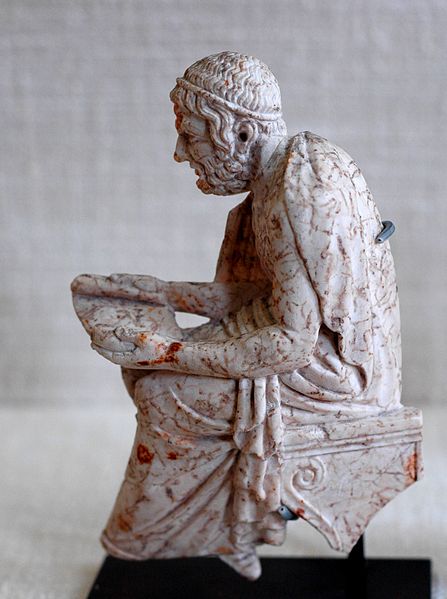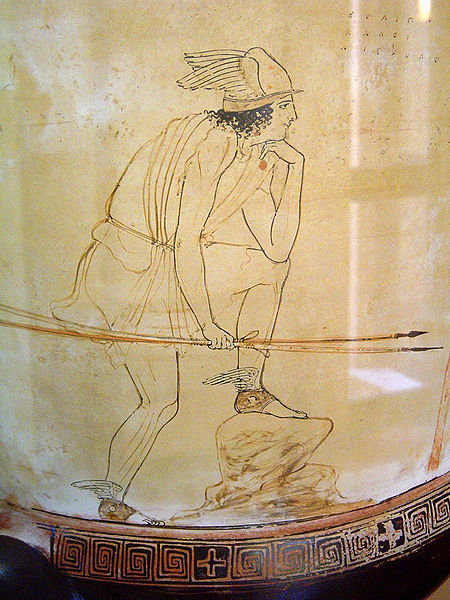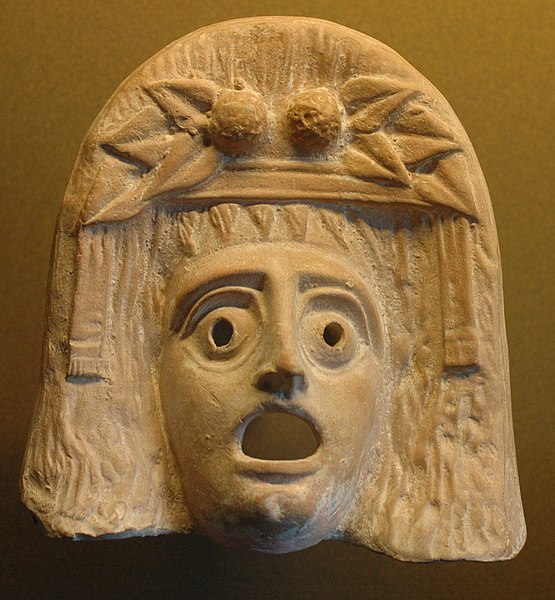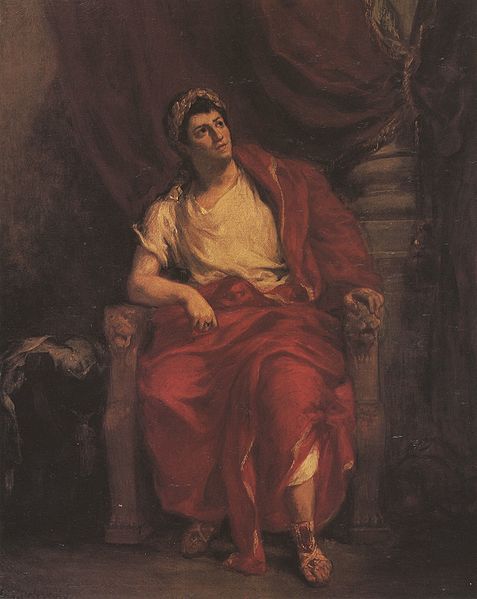Sophocles was an ancient Greek tragedian, known as one of three from whom at least one play has survived in full. His first plays were written later than, or contemporary with, those of Aeschylus; and earlier than, or contemporary with, those of Euripides. Sophocles wrote over 120 plays, but only seven have survived in a complete form: Ajax, Antigone, Women of Trachis, Oedipus Rex, Electra, Philoctetes, and Oedipus at Colonus. For almost fifty years, Sophocles was the most celebrated playwright in the dramatic competitions of the city-state of Athens which took place during the religious festivals of the Lenaea and the Dionysia. He competed in thirty competitions, won twenty-four, and was never judged lower than second place. Aeschylus won thirteen competitions, and was sometimes defeated by Sophocles; Euripides won four.
Sophocles
A marble relief of a poet, perhaps Sophocles
Portrait of the Greek actor Euiaon in Sophocles' Andromeda, c. 430 BC.
Oedipus at Colonus by Jean-Antoine-Théodore Giroust (1788), Dallas Museum of Art
Tragedy is a genre of drama based on human suffering and, mainly, the terrible or sorrowful events that befall a main character. Traditionally, the intention of tragedy is to invoke an accompanying catharsis, or a "pain [that] awakens pleasure,” for the audience. While many cultures have developed forms that provoke this paradoxical response, the term tragedy often refers to a specific tradition of drama that has played a unique and important role historically in the self-definition of Western civilization. That tradition has been multiple and discontinuous, yet the term has often been used to invoke a powerful effect of cultural identity and historical continuity—"the Greeks and the Elizabethans, in one cultural form; Hellenes and Christians, in a common activity," as Raymond Williams puts it.
Mask of Dionysus. Greek, Myrina, 2nd century BCE.
Scene from the tragedy Iphigenia in Tauris by Euripides. Roman fresco in Pompeii.
Edwin Austin Abbey (1852–1911) King Lear, Cordelia's Farewell
French actor Talma as Nero in Racine's Britannicus.








